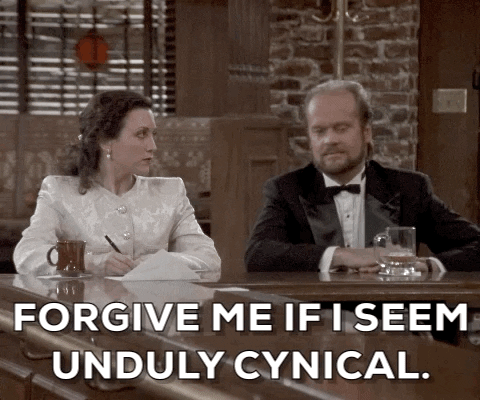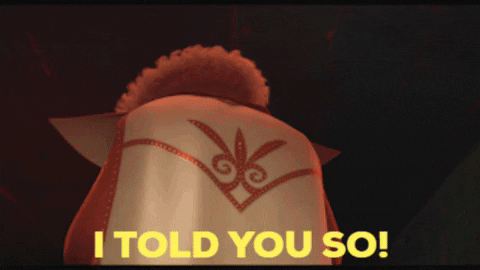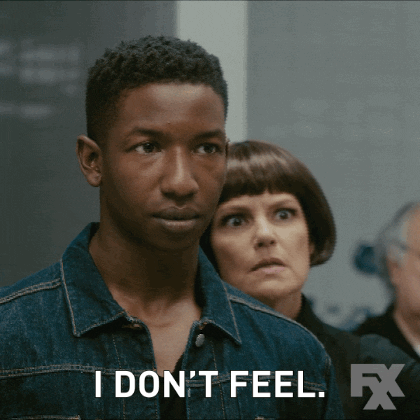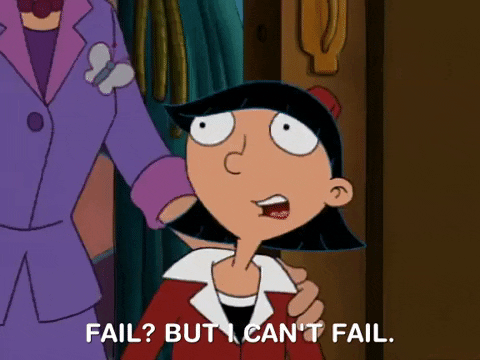Ever felt like you’re watching a character on screen and thinking, “Wait, is that supposed to be me?” It’s like peeking into a funhouse mirror where everything’s exaggerated, especially when it comes to personality types. So, you’ve noticed the INTJ stereotypes floating around in movies, TV shows, and books, huh? Buckle up, because we’re about to dive into this whirlwind of perceptions.
You’re not alone if you’ve felt a mix of skepticism, annoyance, and maybe even a tad bit of curiosity when INTJs are depicted on screen. Picture this: you’re watching a show, and there’s this character who’s super logical, always planning everything ten steps ahead, and is a bit of a loner. You might be thinking, “Come on, really? Not all INTJs are like that, right?” Well, guess what? You’re spot on. Let’s break it down.
Alright, let’s cut to the chase. We’ve all seen those portrayals of INTJs that make us raise an eyebrow and go, “Seriously?” You know, the ones where they’re depicted as these genius masterminds, always plotting and scheming, with about as much warmth as an iceberg. But here’s the thing: those stereotypes are about as accurate as a weather forecast in a blizzard.
1. Workaholics:
So, you’ve seen INTJs being portrayed as workaholics who eat, sleep, and breathe their jobs? But hold up, is that the full story? Let’s break it down. Sure, INTJs are hard workers, but do they really spend every waking hour chained to their desks? Absolutely not. We INTJs understand the importance of balance, knowing when to work hard and when to kick back and relax. We’re the type to put in the extra hours to get the job done, but we also know the value of downtime. Whether it’s pursuing a hobby, spending time with loved ones, or just chilling out with a good book, we know how to recharge our batteries so we can come back even stronger.
Read More: The Cockroach Theory for Self Development
2. Emotionally Detached:
Ever watched a movie where the INTJ character seems as cold as an iceberg? You might be thinking, “Wait a minute, do INTJs really lack emotions?” But here’s the thing: we might not wear our hearts on our sleeves, but that doesn’t mean we’re emotionless robots. We’ve got feelings too, just in our own INTJ way. We’re the type to analyze our emotions, understanding them before expressing them. And when we do, it’s genuine and heartfelt. We might not be the ones to burst into tears at the drop of a hat, but that doesn’t mean we don’t feel deeply. We’re just more selective about who we show our vulnerable side to.
3. Control Freaks:
Picture this: INTJs as control freaks who plan every minute of their lives and freak out at the slightest deviation from the plan. But let’s bust that myth wide open. While we do love our plans and schedules, we’re not about to have a meltdown if things don’t go exactly as planned. We’re more like expert navigators who know how to steer through life’s twists and turns. We’re adaptable, able to adjust our plans on the fly when life throws us a curveball. Instead of freaking out, we see challenges as opportunities to flex our problem-solving muscles. So yeah, we like to be in control, but we’re not about to lose our cool when things don’t go according to plan.
4. Arrogant Know-It-Alls:
You’ve probably seen INTJs portrayed as arrogant know-it-alls who think they’re the smartest person in the room, right? But here’s the truth bomb: we INTJs might be confident in our abilities, but we’re not walking around with our noses in the air. We’re always eager to learn and grow, because let’s face it, no one knows it all. We’re the type to seek out new knowledge, constantly expanding our horizons. And when we do share what we know, it’s not to show off, but to contribute to the conversation. We value intelligence, but we also value humility. After all, there’s always more to learn, right?
5. Socially Awkward:
Ever cringed at how INTJs are depicted as socially awkward wallflowers who’d rather be anywhere else but at a party? But hold your horses, because reality check: we INTJs might prefer meaningful conversations to small talk, but that doesn’t mean we’re social hermits. We’re just selective about who we spend our time with. We’re the type to thrive in one-on-one or small group settings, where we can dive deep into topics that interest us. And while big, noisy parties might not be our thing, that doesn’t mean we can’t hold our own in social situations. We might not be the life of the party, but we can definitely hold a conversation with the best of them.
6. Conspiracy Theorists:
INTJs as conspiracy theorists who see patterns and connections where none exist? Sounds like something out of a thriller movie, right? But let’s hit the pause button and think about it. Sure, we INTJs are good at connecting the dots, but we’re not about to jump on the conspiracy train without evidence. We prefer facts over wild speculation any day. We’re the type to question everything, to look for the truth behind the headlines. And while we might entertain some far-fetched ideas from time to time, we always come back to what’s grounded in reality. So yeah, we’re not afraid to question the status quo, but we’re also not about to believe every wild theory that comes our way.
7. Robotic Voices:
Ever noticed how INTJs in media speak in monotone voices, like some sort of emotionless AI? But here’s the reality check: we INTJs might have a calm and composed way of speaking, but that doesn’t mean we’re devoid of emotion. We’ve got plenty of passion; we just express it in our own INTJ style. We’re the type to think before we speak, to carefully choose our words to convey exactly what we mean. And while our voices might not be the most animated, they’re definitely not lacking in emotion. So next time you hear an INTJ speaking, listen closely. You might just hear the passion behind the words.
8. Lack of Empathy:
INTJs as lacking empathy? Sounds like a plot hole in the movie of life, doesn’t it? But here’s the twist: we INTJs might not be as touchy-feely as some, but that doesn’t mean we’re heartless. We’re more about practical solutions than emotional hand-holding, but trust me, we’ve got a heart in there somewhere. We’re the type to offer solutions rather than sympathy, to lend a helping hand when someone needs it most. And while we might not always express our empathy in the most traditional ways, it’s definitely there, lurking beneath the surface. So next time you need a shoulder to lean on, don’t be afraid to reach out to an INTJ. We might surprise you with our capacity for understanding.
9. No Sense of Humor:
Heard the one about INTJs having no sense of humor? Yeah, it’s a real knee-slapper. But here’s the punchline: we INTJs might have a dry and sarcastic sense of humor, but that doesn’t mean we don’t know how to laugh. We appreciate a good joke as much as the next person, as long as it’s clever and witty. We’re the type to find humor in the absurdities of life, to see the irony in everyday situations. And while we might not be the ones cracking jokes left and right, when we do, you can bet they’ll be memorable. So next time you’re in need of a good laugh, don’t overlook the INTJ in the corner. We might just have the perfect joke up our sleeves.
10. Overly Critical:
Ever felt like INTJs are portrayed as overly critical nitpickers who find fault in everything? But here’s the reality check: while we INTJs have high standards, we’re not about tearing others down. We believe in constructive criticism, in making things better, not just pointing out flaws for the sake of it. We’re the type to offer feedback with the intention of helping others grow, to see the potential in every situation. And while we might be quick to spot areas for improvement, it’s only because we want to see everyone succeed and reach their full potential. We’re the ones who will point out what could be better, not to criticize, but to inspire improvement. We believe in pushing boundaries and challenging the status quo, not to tear down, but to build up something even better.
11. Always Serious:
INTJs as serious as a heart attack? Not quite. While we do take life seriously when needed, we’re not walking around with a permanent frown plastered on our faces. We’re just selective about when we let our guard down and show our goofy side. Life’s too short to be serious all the time, right? We’re the type to find humor in everyday situations, to laugh at ourselves and the absurdities of life. And while we might approach things with a seriousness, it’s only because we’re passionate about what we do. So next time you see an INTJ with a serious expression, don’t be fooled. We’re probably just lost in thought, plotting our next big move.
12. Unfeeling Logic Machines:
Ever felt like INTJs are portrayed as emotionless robots who prioritize logic over everything else? But here’s the thing: we INTJs might lean into logic, but that doesn’t mean we’re devoid of emotions. We’re just more about keeping a cool head and making rational decisions, even when things get emotional. We’re the type to approach problems with a logical mindset, to analyze the situation and come up with the most effective solution. And while we might not always show our emotions on the surface, they’re definitely there, guiding our decisions behind the scenes. So next time you see an INTJ making a calculated move, remember, there’s more to us than meets the eye.
13. Always Right:
INTJs as always right? Sounds like a script from a bad movie. But here’s the twist: we INTJs might be confident in our opinions, but we’re not afraid to admit when we’re wrong. We’re all about seeking the truth, even if it means admitting we missed the mark. We’re the type to question our own beliefs, to seek out new information and perspectives. And while we might have strong convictions, we’re always open to changing our minds in the face of new evidence. So next time you’re in a debate with an INTJ, don’t be surprised if they admit they were wrong. It’s all part of the process of learning and growing.
14. Misanthropes:
Ever felt like INTJs are portrayed as misanthropic loners who hate humanity? But here’s the reality check: we INTJs might enjoy our alone time, but that doesn’t mean we hate people. We’re just selective about who we spend our time with, preferring quality over quantity when it comes to friendships. We’re the type to value deep, meaningful connections, to seek out like-minded individuals who challenge and inspire us. And while we might enjoy our solitude, it’s not because we dislike people. It’s because we value our time and energy, choosing to invest it in those who truly matter. So next time you see an INTJ flying solo, don’t assume they’re a misanthrope. They might just be enjoying some much-needed alone time.
Read More: Have an INTJ personality? Here’s a Procrastination Solution that Works
15. Social Outcasts:
You’ve probably seen INTJs portrayed as social outcasts who can’t seem to fit in anywhere. But here’s the thing: we INTJs might march to the beat of our own drum, but that doesn’t mean we’re outcasts. We’ve got our own circle of friends who appreciate us for who we are, quirks and all. We’re the type to value quality over quantity when it comes to friendships, to seek out those who truly understand and accept us. And while we might not conform to societal norms, that doesn’t mean we’re unable to connect with others. So next time you see an INTJ on the sidelines, don’t assume they’re lonely. They might just be waiting for the right moment to shine.
16. No Room for Creativity:
INTJs as lacking creativity? That’s like saying the sky is green. We might approach things with a logical mindset, but that doesn’t mean we’re devoid of creativity. We’re innovative problem-solvers who enjoy thinking outside the box and coming up with original ideas. We’re the type to see problems as opportunities, to view challenges as a chance to flex our creative muscles. And while our solutions might be practical and efficient, they’re also often innovative and unexpected. So next time you’re in need of a creative solution, don’t overlook the INTJ in the room. They might just have the perfect idea up their sleeve.
17. Inflexible Thinkers:
Ever felt like INTJs are portrayed as stubborn mules who refuse to consider other viewpoints? But here’s the reality check: while we INTJs have strong opinions, we’re not closed-minded. We’re always open to new ideas and perspectives, willing to change our minds if the evidence stacks up. We’re the type to approach things with a healthy dose of skepticism, to question everything and seek out the truth. And while we might have our convictions, we’re not afraid to admit when we’re wrong. So next time you’re in a debate with an INTJ, don’t be afraid to challenge their beliefs. They might just surprise you with their open-mindedness.
18. Controlled Emotions:
INTJs as emotionless robots who suppress their feelings? Sounds like a script from a bad sci-fi movie. But here’s the truth: we INTJs might not wear our hearts on our sleeves, but that doesn’t mean we don’t feel deeply. We’re just selective about who we show our emotions to. We’re the type to keep our cool in stressful situations, to approach things with a level head and a calm demeanor. And while we might not always express our emotions in the most obvious ways, they’re definitely there, bubbling beneath the surface. So next time you see an INTJ maintaining their composure, don’t mistake it for indifference. They might just be processing their emotions in their own INTJ way.
Read More: 9 INFJs stereotypes; Exposing the truth behind every cliché
19. Judgmental:
Ever felt like INTJs are portrayed as judgmental snobs who look down on everyone else? But here’s the reality check: we INTJs might have strong opinions, but we’re not about passing judgment. We believe in understanding where people are coming from, even if we don’t always agree. We’re the type to approach situations with empathy and compassion, to see the humanity in everyone. And while we might have our criticisms, they’re always rooted in a desire to see people grow and succeed. So next time you’re in a conversation with an INTJ, don’t be afraid to share your thoughts. They might just surprise you with their understanding and acceptance.
20. Perfectionists:
INTJs as perfectionists who obsess over every little detail? Yeah, not quite. While we do have high standards, we also know when to cut ourselves some slack. We’re more about progress than perfection, knowing that sometimes good enough is, well, good enough. We’re the type to embrace imperfection, to see mistakes as opportunities to learn and grow. And while we might strive for excellence, we also know that perfection is often unattainable. So next time you see an INTJ working on a project, don’t mistake their attention to detail for perfectionism. They’re just focused on doing their best, one step at a time.
…………………………………………………………………………………………………………………………………………………………………………………………………………..
So, dear readers, what’s the verdict? Are INTJ stereotypes in the media fact or fiction?
Well, if we’ve learned anything from this deep dive into the world of INTJ stereotypes, it’s that they’re mostly fiction. These portrayals might make for entertaining characters in movies and TV shows, but they often miss the mark when it comes to representing real INTJs.
As an authority on this subject, let me reassure you: INTJs are complex individuals, just like anyone else. We have our quirks and idiosyncrasies, but we’re not the robotic, emotionless geniuses that the media often portrays us to be.
We’re capable of deep empathy, genuine warmth, and yes, even a wicked sense of humor. We’re not afraid to admit when we’re wrong, and we’re always open to new ideas and perspectives.
So, to all the INTJs out there who secretly feel misunderstood, take heart. You’re not alone, and you’re not the sum of the stereotypes that society imposes on you.
And to everyone else, the next time you encounter an INTJ, remember this: they might not fit neatly into the boxes that the media has created for them, but that’s what makes them so fascinating.
So let’s break free from the shackles of stereotypes and embrace the complexity of human nature. After all, isn’t that what makes life interesting?



















